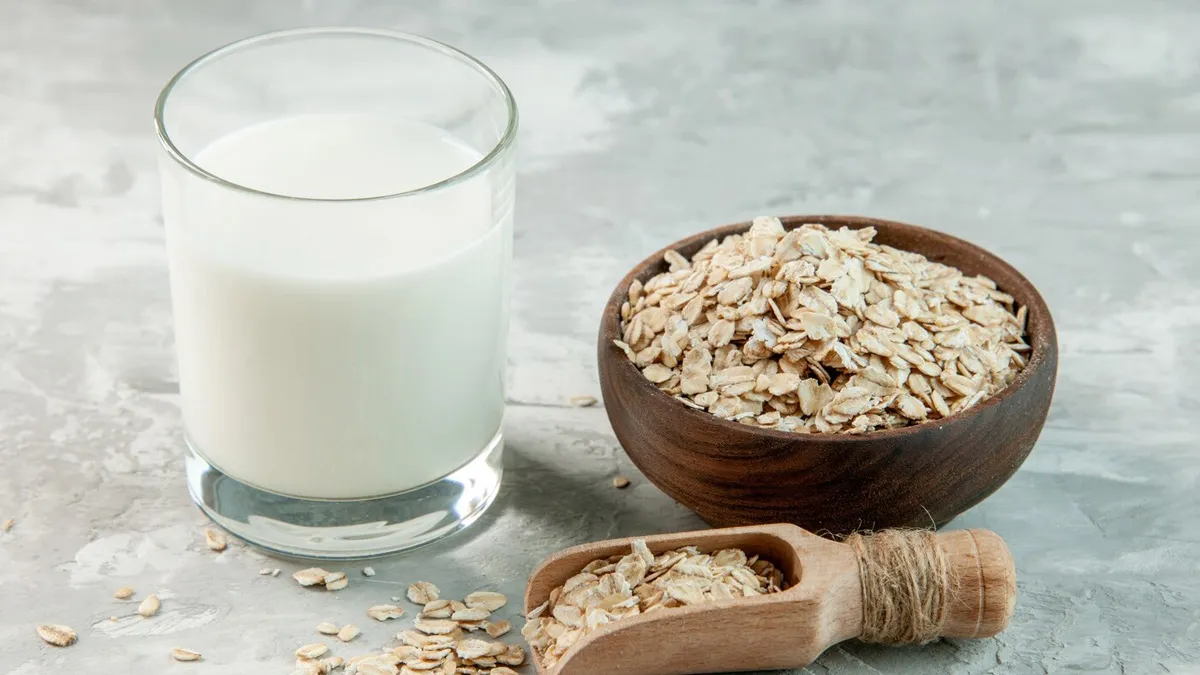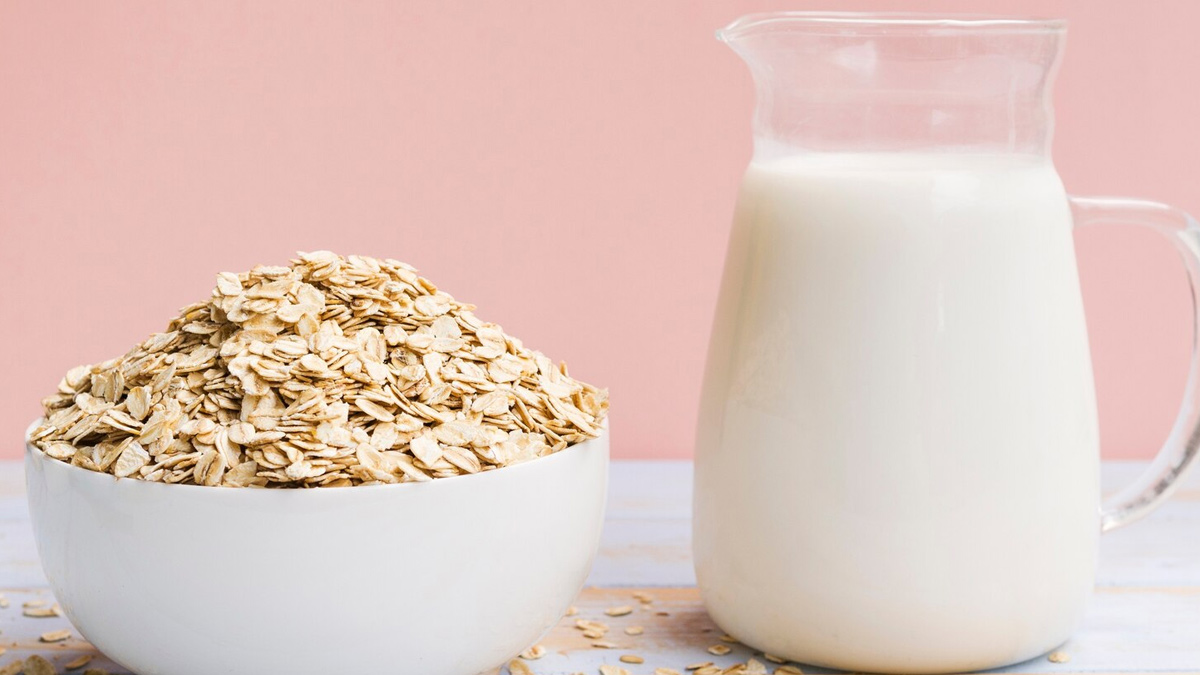
Oat milk has become a popular dairy alternative, loved for its creamy texture and mild, slightly sweet flavour. But if you have diabetes or are watching your blood sugar, it’s important to understand how oat milk affects your body compared to regular cow’s milk or other plant-based options. Dr Pooja Pillai, Consultant – Physician and Diabetologist, Aster CMI Hospital, Bengaluru, shares key insights to help you make an informed choice.
Table of Content:-
Also Read: Is Bread Really Hard to Digest? Nutritionist Breaks It Down
How Oat Milk Affects Blood Sugar

Oat milk naturally contains more carbohydrates and has a higher glycaemic index (GI) than regular cow’s milk. "This means that oat milk can raise blood sugar levels more quickly than cow’s milk. The natural starches in oats are broken down into simple sugars during processing, and this makes them enter the bloodstream faster," explains Dr Pillai.
Regular milk, on the other hand, contains lactose, which is digested more slowly, and it also has protein and fat that help slow down the rise in blood sugar.
For people with diabetes or prediabetes, this difference is important, as drinking oat milk may lead to a quicker spike in blood sugar compared to regular milk, even though it is a healthy, dairy-free option.
Is Oat Milk a Good Option for Lactose-Intolerant Diabetics?

If you’re diabetic and lactose intolerant, oat milk can still be part of your diet. It’s naturally free of lactose and easier to digest than cow’s milk. Plus, it provides beta-glucan fibre, which can help slow the absorption of sugar into the bloodstream.
However, Dr Pillai advises choosing unsweetened oat milk and watching your portion size. Sweetened versions can add unnecessary sugars, leading to higher blood sugar spikes. "Choosing unsweetened oat milk is important to avoid extra sugar. In moderation, oat milk can be a safe and healthy choice, but diabetics should always monitor their blood sugar levels after drinking it,” she advises.
Glycaemic Index: Why It Matters
The glycaemic index measures how quickly a food or drink raises blood sugar. Oat milk has a moderately high glycemic index (GI) of about 59.6, according to a review published in the journal Food. This means it can increase blood sugar more rapidly than low-GI foods.
"The GI matters because it shows how quickly a food or drink increases blood sugar after eating or drinking it. For diabetics, choosing foods with a lower GI helps to keep blood sugar steady and avoid sudden spikes," explains Dr Pillai.
She adds, "Oat milk has natural sugars and carbohydrates that digest quickly, so it can affect blood sugar more than other plant-based milks like soy or almond milk. This is why people with diabetes should prefer unsweetened oat milk and drink it in moderation while monitoring their sugar levels."
Also Read: Is Your Gas a Gut Feeling? Decoding What Your Flatulence Reveals About Your Health
Can You Drink Oat Milk Every Day?

According to the doctor, people with diabetes can consume oat milk daily, but they should do it in moderation and choose the unsweetened version.
"Oat milk has fibre that can help slow sugar absorption, but it also contains natural sugars and more carbohydrates compared to other plant-based milks like almond or soy milk," she says.
However, drinking too much oat milk may cause blood sugar spikes, so portion control is very important.
"Having a small glass once a day, along with a balanced diet, is generally safe for most diabetics. It is also good to pair oat milk with high-protein or high-fibre foods to balance blood sugar levels. Monitoring blood sugar after drinking oat milk helps to understand how the body reacts to it,” she recommends.
Conclusion
Oat milk is a delicious, dairy-free alternative that provides fibre and nutrients, but its higher carbohydrate content and medium-to-high glycaemic index mean it can raise blood sugar faster than cow’s milk or other plant-based options.
If you have diabetes, enjoy oat milk in moderation, choose unsweetened varieties, and pair it with protein- or fibre-rich foods. Monitoring your blood sugar after drinking oat milk will help you understand how your body responds.
Also watch this video
How we keep this article up to date:
We work with experts and keep a close eye on the latest in health and wellness. Whenever there is a new research or helpful information, we update our articles with accurate and useful advice.
Current Version
Sep 13, 2025 08:50 IST
Modified By : Tenzin ChodonSep 13, 2025 08:50 IST
Published By : Vani Malik